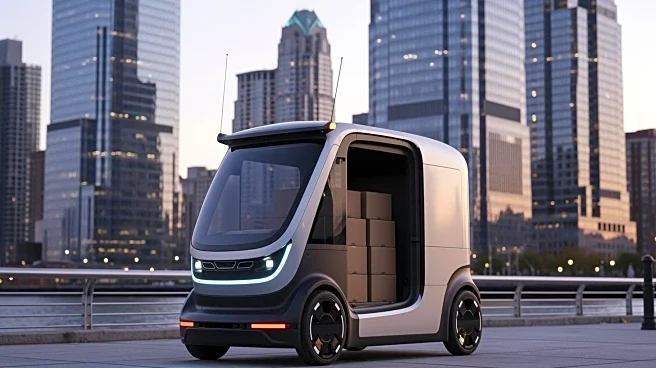What's Happening?
Grubhub has partnered with self-driving technology startup Avride to initiate a robot food delivery pilot in Jersey City, New Jersey. This collaboration allows users to place orders through the Grubhub app
and opt for Avride robot delivery if they are within the service range. The pilot program aims to test the AI-based self-driving robots in navigating populated urban areas and diverse weather conditions. This initiative follows previous partnerships, such as Avride's collaboration with Uber for food deliveries and robotaxis, and builds on their earlier deployment of 120 robots at Ohio State University. The pilot is part of a broader trend among food delivery apps to implement robot deliveries to reduce labor costs, enhance service speed, and improve reliability.
Why It's Important?
The introduction of robot food delivery services by Grubhub and Avride represents a significant shift in the food delivery industry, potentially reducing operational costs and increasing efficiency. By leveraging autonomous technology, these companies aim to address challenges such as labor shortages and high delivery costs. The success of this pilot could lead to wider adoption of robot deliveries across the U.S., impacting traditional delivery jobs and reshaping consumer expectations for speed and reliability. Additionally, the partnership highlights the growing interest in integrating AI and robotics into everyday services, which could spur further innovation and investment in autonomous technologies.
What's Next?
Following the pilot in Jersey City, Grubhub plans to expand robot deliveries to more U.S. markets, contingent on the success of the initial tests. This expansion could prompt other food delivery companies to accelerate their own autonomous delivery initiatives to remain competitive. Stakeholders, including local governments and regulatory bodies, may need to address new challenges related to urban planning and safety regulations for autonomous delivery systems. The outcome of this pilot could also influence consumer acceptance and demand for robot-delivered services, potentially leading to broader societal changes in how goods are delivered.









